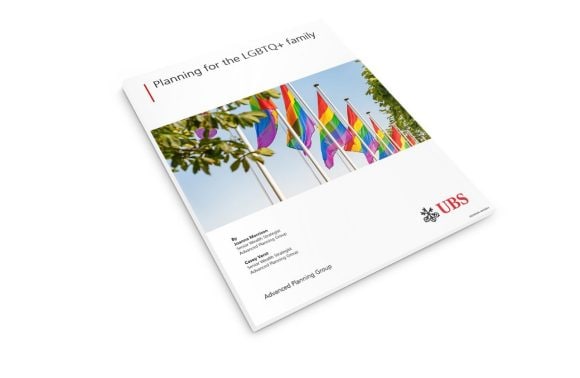Planning for the LGBTQ+ family
Navigating a complex legal and economic landscape

![]()
header.search.error
Navigating a complex legal and economic landscape

While many same-sex couples have married since the United States Supreme Court 2015 ruling in favor of same-sex marriage, Obergefell v. Hodges, many couples have opted to continue living together unmarried.1 Additionally, many same sex couples are raising children.2 Whether married or not, planning is key for LGBTQ+ couples looking to navigate a complex legal and economic landscape and ensure each partner’s wishes are addressed.3
Marriage comes with both benefits and drawbacks for LGBTQ+ couples. Whether you choose to marry or remain unmarried, planning is critical to ensure that you and your partner’s wishes are addressed around healthcare, estate planning and other important decisions. If you have or want to have children, the landscape is even more complex.

Since Obergefell v. Hodges, same-sex couples can enjoy many of the benefits of marriage, including:
Two married high earners may end up paying more federal income tax than they might have if they remained unmarried.
State laws differ, but marriage often entails subjecting one spouse to the debts and credit history of the other spouse.
Prior to the legalization of same-sex marriage, many LGBTQ+ couples set up trusts for their unmarried partners or named their unmarried partner as a trustee of a trust. Getting married after such transactions may create unwanted consequences in those trust documents.

Essential planning questions
For LGBTQ+ couples and families, important estate planning questions include:
Despite the Supreme Court’s ruling, LGBTQ+ couples that continued in a domestic partnership or civil union and did not obtain a marriage license are essentially treated as unmarried partners for purposes of federal tax law.5 This can sometimes lead to disastrous federal tax consequences.
For example, consider an unmarried couple where one partner earns income for the whole family. If the earning partner purchases a home and titles it in the joint name of the couple, this could be deemed a taxable gift to the non-earning partner—which could require the earning partner to file a gift tax return, using their lifetime exemption amount and possibly paying a gift tax. Registered domestic partners and those who entered a civil union will face the same potential calamity.
An estate plan is essential to ensure that each partner is provided for. Other critical documents for same-sex couples include:
For more information about planning strategies for LGBTQ+ couples and families, see our publication, Planning for LGBTQ+ families. Connect with a UBS Financial Advisor to understand how planning can help address your particular needs.
